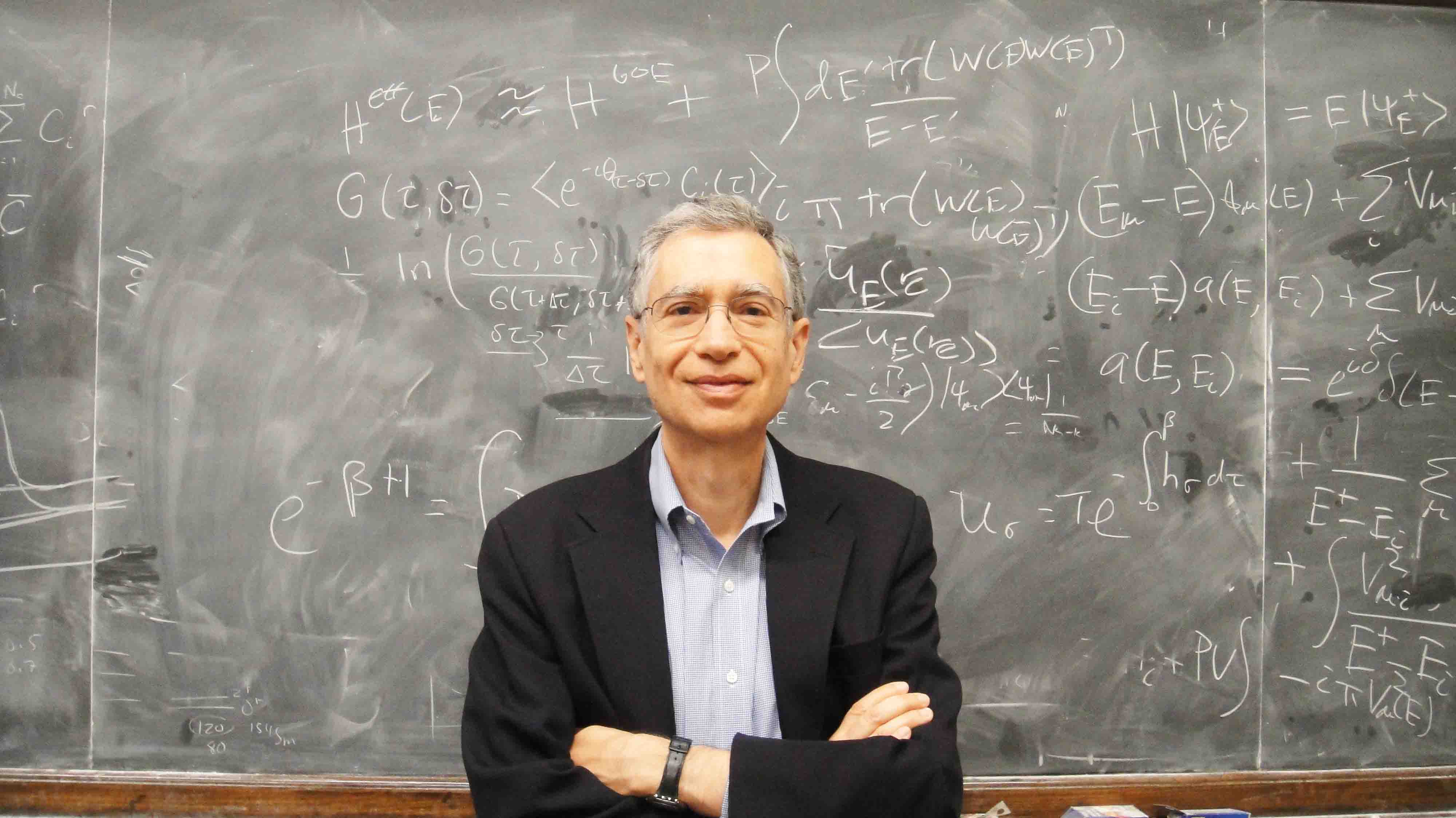
YoramAlhassid
Yoram Alhassid, a theoretical physicist and professor in the Yale physics department since 1981, was named the Frederick Phineas Rose professor of physics last Tuesday, in an announcement by University President Peter Salovey.
Alhassid’s work on nuclear many-body theory has improved understanding of the formation of elements in stars — a process known as nucleosynthesis. Nuclear many-body theory studies atomic nuclei from the perspective of their constituent parts, modeling the center of the atom as a collection of subatomic particles that interact with one another.
“[Alhassid] has made huge contributions in numerics for nuclear theory,” said Scott Jensen GRD ’19, a fifth-year graduate student in Alhassid’s research group. “In cold atoms, quantum dots and nuclear theory he’s made big strides, particularly when it comes to computational methods and finding clever ways of doing things.”
Alhassid’s current research spans many areas of theoretical physics, focusing on nuclear, atomic and condensed matter physics. Since it is very difficult to calculate the properties of nuclei directly from subatomic interactions, he said, his team has developed statistical methods to model those interactions more efficiently. He added that these calculations will help physicists better understand how heavy elements are formed in stars and will aid in modeling nuclear reactions.
“The research that we are doing in my group is ‘basic’ science,” Alhassid said. “Eventually, it finds its way into applications. If you think about development of important [technology] that you use in your daily life, many of them actually came out from understanding ‘basic’ science.”
Alhassid’s team also works on studying tiny structures, which are larger than a single atom yet still exhibit quantum behavior that isn’t seen on larger scales. Experimental physicists construct devices that trap electron particles in a tiny region. These devices are known as “artificial atoms,” or quantum dots. Physicists can control the parameters of these devices in order to study the physics of these structures. His team also studies ultra-cold gases in order to study strong particle interactions in a controlled setting.
Alhassid arrived at Yale in 1981 and earned tenure in 1987. He has been a full professor since 1990. Over the course of his career, Alhassid estimates that he has published more than 240 articles and spoken at more than 160 conferences and workshops. In 2001, he won the Alexander von Humboldt Senior Scientist Award for his work on many-body theory, and he became a fellow of the American Physical Society.
Alhassid’s professional life has not been without its ups and downs. In 2006, he was tackled by a charging bear in the hallway of the Aspen Center for Physics in Colorado. The Vail Daily news reported that while Alhassid “was reportedly not hurt badly during the encounter, there was no word as to the bear’s condition.”
The Frederick P. Rose professorship is an endowed University chair established in 1997 to recognize scholars of distinction who are also committed to teaching, according to a press release circulated at the time of the position’s creation.
Keshav Raghavan | keshav.raghavan@yale.edu







